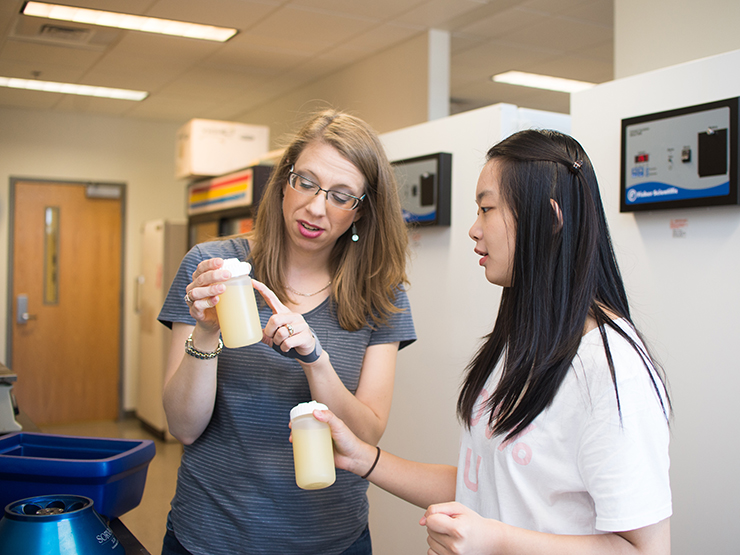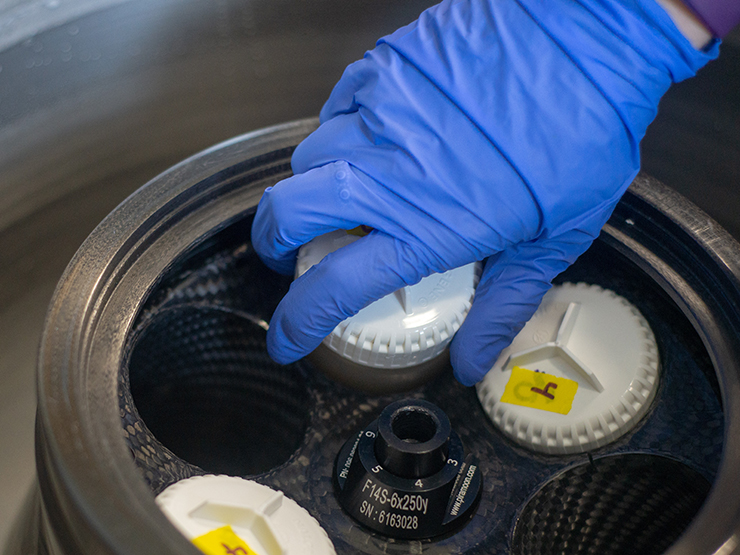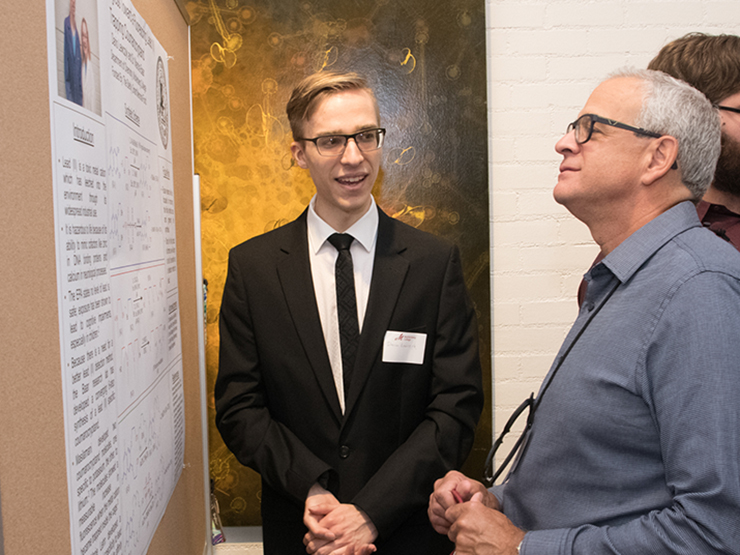
Research
Independent research is a critical part of the undergraduate educational experience. Faculty advisors work with you to explore opportunities on and off campus.
Explore biochemistry - the study of organisms, cells and cellular components at the chemical and molecular level - with Muhlenberg's renowned natural sciences faculty.
The Biochemistry Program at Muhlenberg College offers a curriculum that integrates classroom and laboratory-based learning in the interdisciplinary study of living systems at the molecular level. Students explore the interface of chemistry and biology, negotiating distinct yet complementary modes of inquiry.
Our program asks students to confront the implicit responsibilities as well as the societal and ethical implications of research, critically engage with scientific information and develop the reasoning skills necessary to navigate rapidly changing landscapes of knowledge. We value student-faculty collaborative research and encourage the presentation and publication of student work.
In these ways and through supporting students pursuing an additional major/minor(s), studying abroad and engaging in the community, we encourage our students to fully realize the goals of a liberal arts education. Our students can graduate with ACS certification and are poised for a variety of careers, graduate research or professional study.

Independent research is a critical part of the undergraduate educational experience. Faculty advisors work with you to explore opportunities on and off campus.

Muhlenberg's biochemistry program provides access to the latest equipment and resources, and our academic buildings house facilities dedicated to learning, research and experimentation.

Biochemistry alumni are prepared for admittance to the nation's top graduate programs and employment as researchers and in careers as diverse as data management and analytics.
The biochemistry program offers a number of courses throughout the natural sciences.
Following introductory coursework, students consider structure & function, information flow and metabolic pathways within cells.
Students learn how science is done, dissecting scientific literature, engaging in hands-on techniques, designing and conducting experiments.
Students integrate and communicate an understanding of cells and molecules to predict function within the context of human health and disease.
Ali, a Spanish minor, is also part of a research lab and the Muslim Student Association.
Jocelyn Mertz ’25, a biochemistry major and public health minor, is assisting with a Lehigh Valley Health Network study hoping to reduce cervical cancer mortality rates in the local Hispanic community.
As students, Sara Ringenbach ’23, Riri Yoza ’23, Paige A. Jones ’22 and Muxue Du ’21 conducted undergraduate research with Professor of Chemistry Keri Colabroy, who’s also a co-author. The research relates to enzymes that create building blocks for antibiotics.
The Arthur Vining Davis Foundations grant will support the creation and implementation of the MUHLES Program, set to launch next summer.